
Politics
20:28, 18-Aug-2017
Pakistani official: China-Pakistan cooperation not targeted at India
CGTN
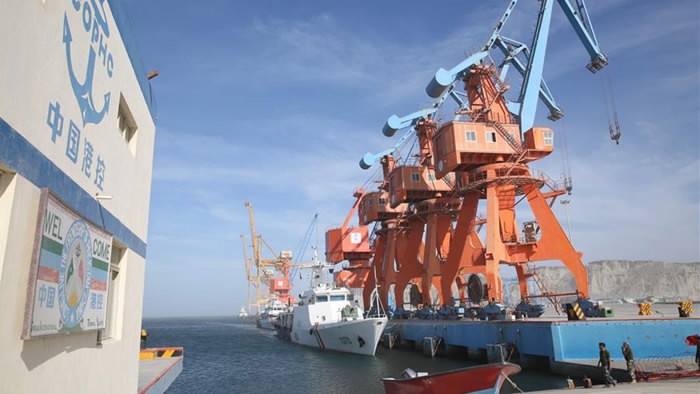
The relationship between China and Pakistan is not targeted at "any third party," said Pakistani Ambassador to China Masood Khalid recently, in response to allegations by the Indian media that China is joining hands with Pakistan to confront India.
China and India have been engaged in a two-month standoff in the Donglang area, over which China has indisputable sovereignty, according to the Chinese Foreign Ministry.
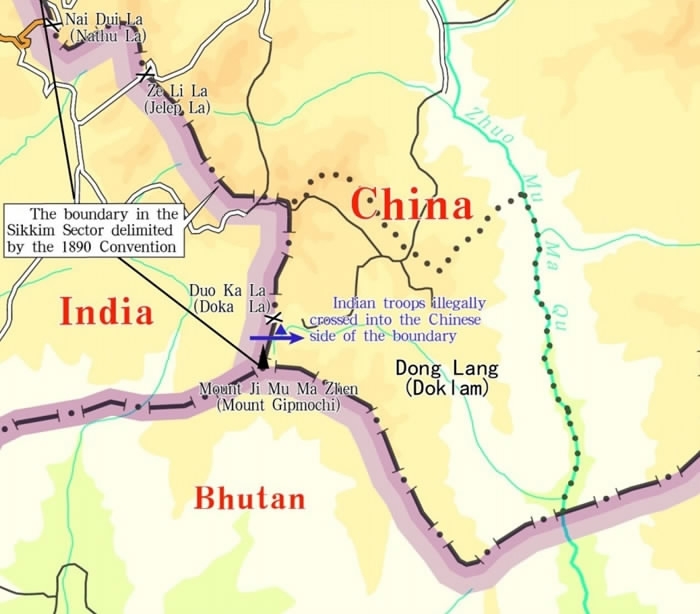
A sketch map of the site of the current standoff between China and India. /Photo via Chinese Foreign Ministry
A sketch map of the site of the current standoff between China and India. /Photo via Chinese Foreign Ministry
"The Five Principles of Peaceful Co-Existence are China's diplomatic guidelines and our policies as well," Khalid told China's Global Times, referring to the principles of mutual respect for sovereignty and territorial integrity, mutual non-aggression, non-interference in each other's internal affairs, equality and mutual benefit, and peaceful coexistence.
"But if a neighbor is too aggressive, we must defend our territory as a sovereign nation," he added.
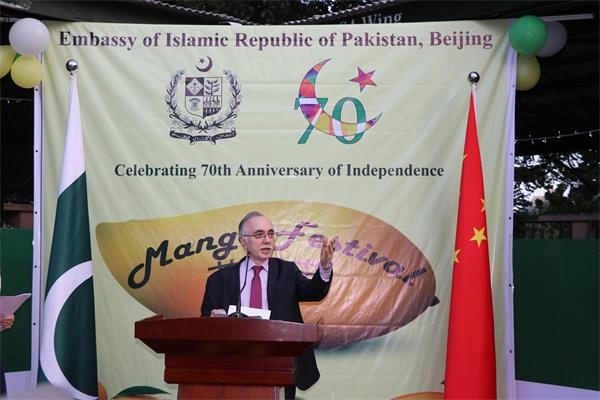
Pakistani Ambassador to China Masood Khalid speaks at an event in honor of the 70th anniversary of Pakistan's independence in Beijing, August 17, 2017. /Photo via Pakistan's Embassy in Beijing
Pakistani Ambassador to China Masood Khalid speaks at an event in honor of the 70th anniversary of Pakistan's independence in Beijing, August 17, 2017. /Photo via Pakistan's Embassy in Beijing
Pakistan celebrated the 70th anniversary of its independence on Monday, and Chinese Vice Premier Wang Yang attended the events in Islamabad at the invitation of the Pakistani government, calling Pakistan a "trusted partner" and "true brother" of China.
Khalid said the invitation had sent a signal to the world: Pakistan "firmly stands side by side with China".
The friendship between the two countries is the cornerstone of Pakistan's diplomatic policies, he noted.
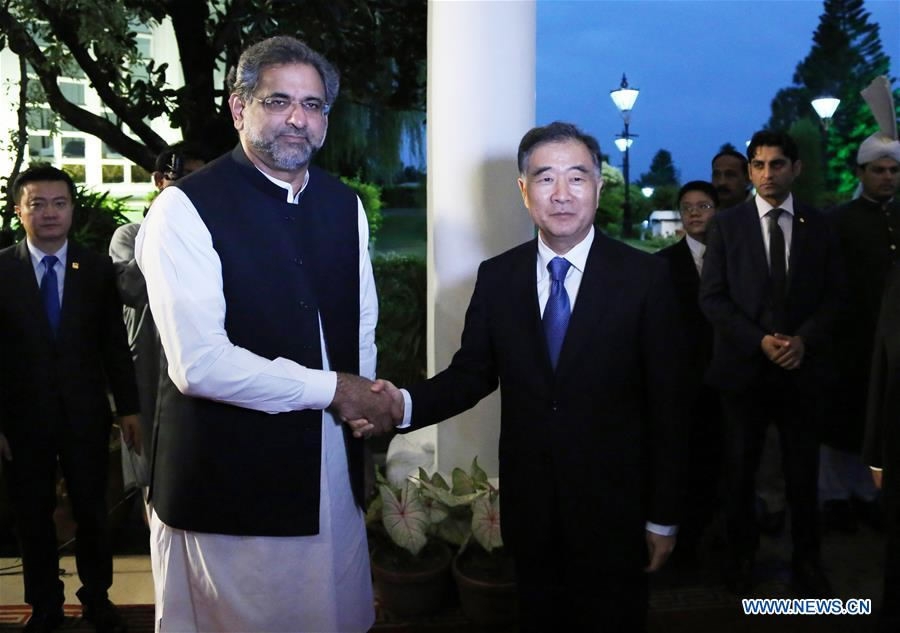
Pakistani Prime Minister Shahid Khaqan Abbasi (front, L) meets with visiting Chinese Vice Premier Wang Yang (front, R) in Islamabad, Pakistan, August 13, 2017. /Xinhua Photo
Pakistani Prime Minister Shahid Khaqan Abbasi (front, L) meets with visiting Chinese Vice Premier Wang Yang (front, R) in Islamabad, Pakistan, August 13, 2017. /Xinhua Photo
Pakistan deploys 15,000 troops to protect CPEC
Proposed by Chinese Premier Li Keqiang in 2013, the China-Pakistan Economic Corridor (CPEC) links Kashgar in northwest China's Xinjiang Uyghur Autonomous Region with Pakistan's Gwadar Port.
According to Khalid, there are about 30,000 Chinese currently working in Pakistan, a country facing frequent terrorist threats from the Taliban and al-Qaeda. The Pakistani government has deployed 15,000 troops to protect the Chinese and CPEC projects.
In addition, each of the country's four provinces has deployed forces to protect Chinese nationals there, he told Global Times.
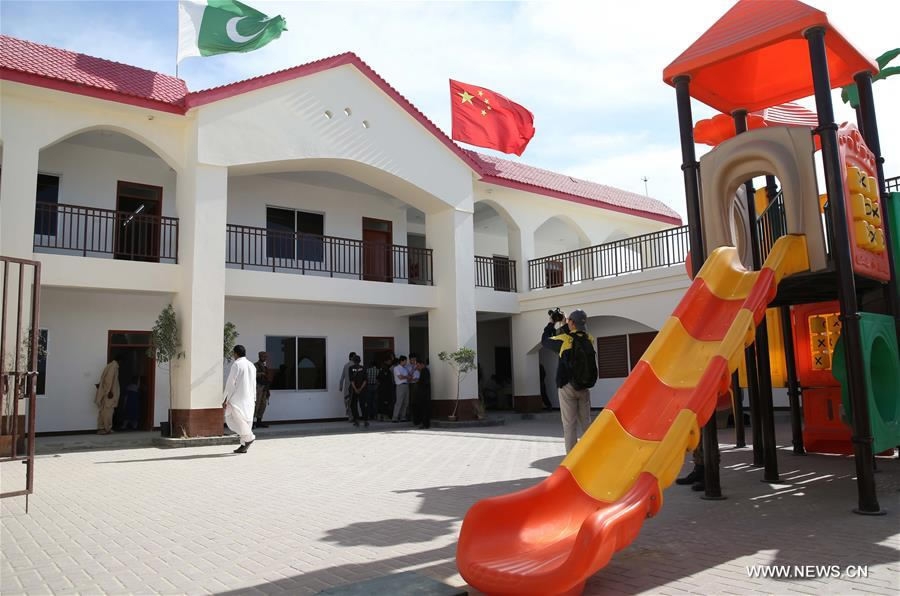
A China-donated primary school in Gwadar, Pakistan, March 22, 2017. /Xinhua Photo
A China-donated primary school in Gwadar, Pakistan, March 22, 2017. /Xinhua Photo
The Pakistani navy raised a contingent for the protection of Gwadar Port, Khalid said at a news conference earlier this year.
The CPEC is an important part of China's Belt and Road Initiative.
Chinese investment in Pakistan reached 1.8 billion US dollars in 2016, while the aggregated amount of Chinese investment in all projects exceeded 50 billion US dollars, the ambassador said.

SITEMAP
Copyright © 2018 CGTN. Beijing ICP prepared NO.16065310-3
Copyright © 2018 CGTN. Beijing ICP prepared NO.16065310-3